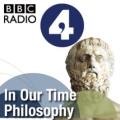
 The SFFaudio Podcast #170 – Jesse, Tamahome, and Jenny discuss the Brilliance Audio audiobook of The Fountains Of Paradise by Arthur C. Clarke.
The SFFaudio Podcast #170 – Jesse, Tamahome, and Jenny discuss the Brilliance Audio audiobook of The Fountains Of Paradise by Arthur C. Clarke.
Talked about on today’s show:
Skyhooks and space elevators, Sri Lanka, “my first space elevator book”, Robert A. Heinlein, Friday, “it feels like a novel”, “the fictional accounting of a real construction project”, history, Colombo, afterwords, sources and acknowledgements, “what a rip-off”, Sigiriya’s Lion Paws Gate, King Kashyapa I, “past, present, and future”, engineering fiction vs. science fiction, Taprobane, Paradise Regained by John Milton, Jo Walton’s review of The Fountains Of Paradise, religion, “Heinlein in a dress”, an idea book, to think interesting Science Fictional thoughts, hard SF, Clarke’s Laws, space probe, a game changer, Gregg Margarite, Shri Jawaharlal Nehru, The Nine Billion Names Of God, Sigmund Freud, growing out of religion?, Thomas Aquinas, symbolic logic, Bertrand Russell, satellites and their uses, unseen benefits to giant engineering projects and science, Sydney Opera House, the Eiffel Tower, Burj Khalifa, Mission: Impossible – Ghost Protocol, “this is what we’re meant to do”, the space age, the 1970s, Jenny gets depressed, Terpkristin‘s visit to French Guiana (PICS!), will we have a Chinese moonbase by 2022?, innovation vs. exploration, Jerry O’Neil, good reasons to go to space, we ought to do things that we can do, Leviathan Wakes by James S.A. Corey, the daily life challenges of a space born population, The Island Worlds by Eric Kotani and John Maddox Roberts, the probe is a person, The Geek’s Guide To The Galaxy #64: John Scalzi, (Star Trek holds us back), “the God Particle”, “you’re going to die soon”, can we empathize with a character that isn’t a human being?, a complimentary cosmonaut, 2001: A Space Odyssey, one day in Jerusalem, the transhuman future in the end of The Fountains Of Paradise, Starglider/Starholme, a well developed solar society, the Wikipedia entry for The Fountains Of Paradise, The Last Theorem, The City And The Stars, a non-off putting post-human story, Childhood’s End by Arthur C. Clarke, Fahrenheit 451 by Ray Bradbury, Ted Chiang, Charles Stross, sequels and science, Star Trek: The Next Generation, Alastair Reynolds, Kim Stanley Robinson, in SF ideas build can on one another whereas others books are more parasitizing upon those ideas, why does it have to be a new book?, ‘these were the stepping stones to today’, a balance of both a good story and good ideas, William Gibson, Embassytown by China Miéville, The City And The City, “garbage, garbage, garbage”, 2312, Playboy’s serialization of The Fountains Of Paradise, Buckminster Fuller, why did Sir Arthur C. Clarke live in Sri Lanka?, Milton is literature, Dante’s Inferno, Lucifer’s fall from heaven, Brilliance Audio, A Fall Of Moondust by Arthur C. Clarke, BBC Radio dramatization of A Fall Of Moondust, Crisis On Conshelf Ten by Monica Hughes, “best book ever”, The Abyss, Tom Swift, Aquaman vs. The Sub-Mariner, Blue Remembered Earth by Alastair Reynolds, The Prefect, Ray Of Light by Brad Torgeson, “Alien sun mirror block deepwater living daughter Glimmer Club surface discovery.”, the Mars tangent, Phobos and Deimos, John Scalzi, “I liked that he didn’t explain it.”, “we don’t build em that way”, “I want it to be hard”, Phobos interference would be a feature not a bug, “wiggle the thread”, atmospheric density and windspeed, carbon nano-tubes vs. buckminsterfullerene, Roald Dahl, Charlie And The Great Glass Elevator, horror, The BFG, Jack McDevitt, a waking dream, in the shadow of Vesuvius, the Prime Directive, Doctor Who, Fantasy vs. Science Fiction, Inferno (Doctor Who episode), Sliders, Doorways by George R.R. Martin, Tom Baker.





Posted by Jesse Willis







![It is widely held that certainty about the real world is a failed historical enterprise (that is, beyond deductive truths, tautology, etc.).[1] It is widely held that certainty about the real world is a failed historical enterprise (that is, beyond deductive truths, tautology, etc.).[1]](https://www.sffaudio.com/images12/FromTheWikipediaEntryOnCertainty565.jpg)







